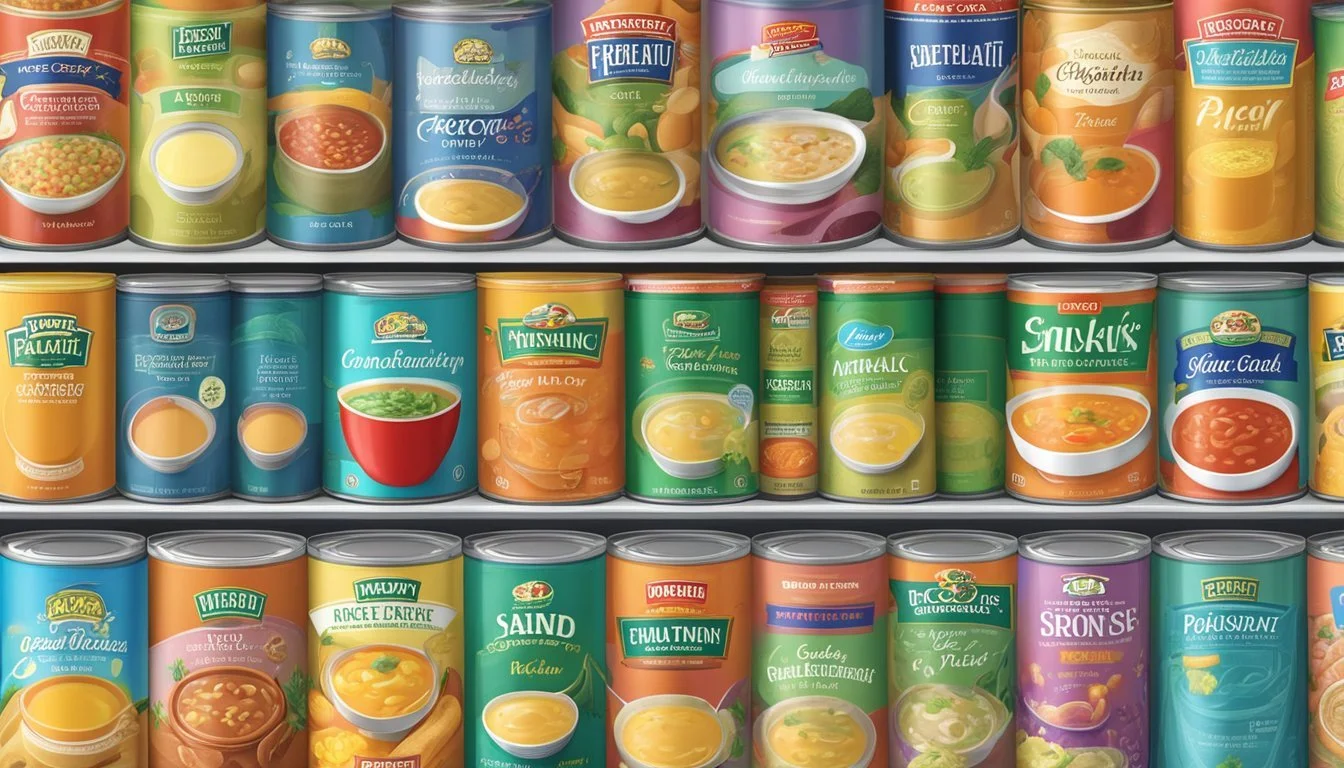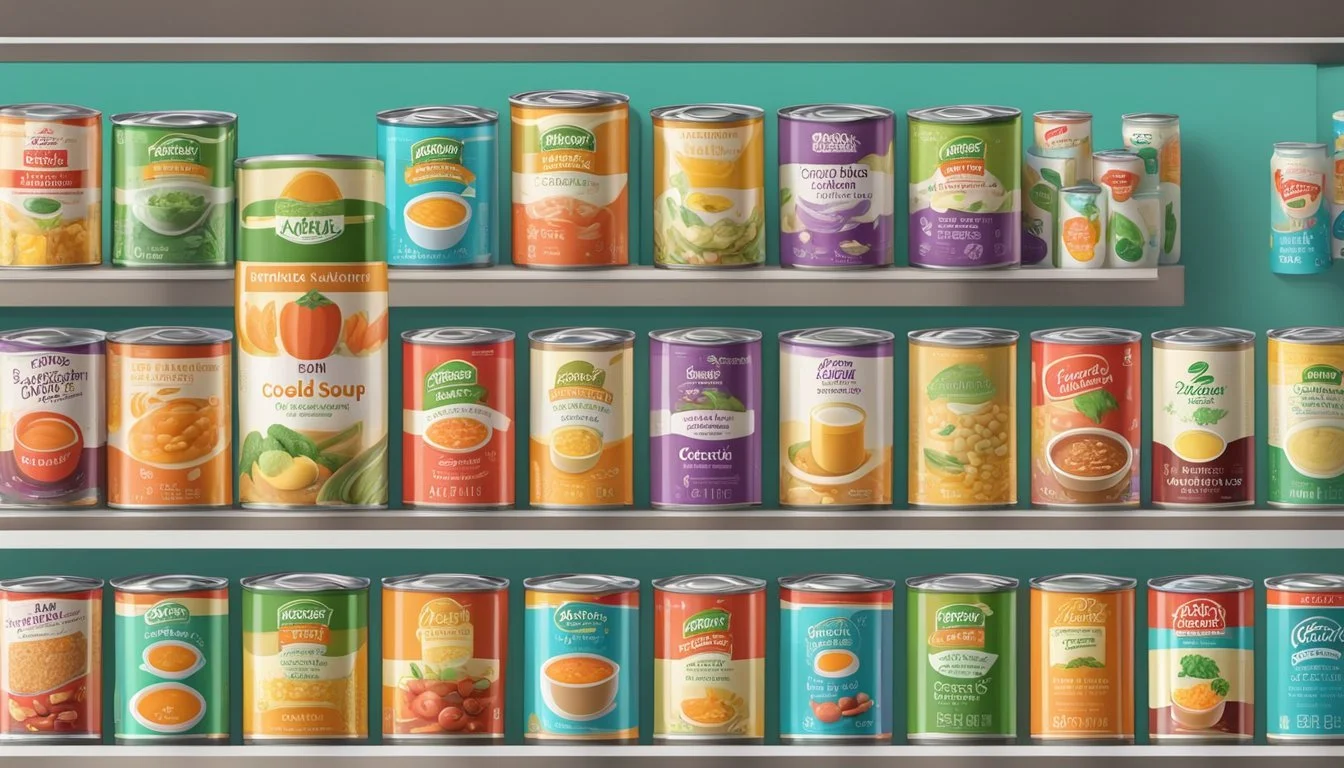Best Canned Soups Brands
Top Picks for Quality and Taste
Canned soups have become a staple in many households, offering a convenient, quick meal option for busy individuals. With a variety of flavors and nutritional profiles available, the market for canned soups presents numerous choices that cater to different dietary needs and preferences.
Choosing the right canned soup can make a significant difference in both taste and health benefits. By exploring some popular and highly-rated brands, consumers can find options that meet their specific tastes and nutritional requirements. This article aims to guide readers through the best canned soup brands available on the market today.
Nutritional Benefits of Canned Soups
Canned soups can be a convenient and nutritious option for people looking to manage their dietary needs. They often contain essential vitamins and minerals and can be found in low-sodium varieties to cater to various health concerns.
Vitamin and Mineral Content
Canned soups often contain a variety of essential vitamins and minerals. Common ingredients like carrots, tomatoes, and spinach provide vitamins A and C, along with crucial minerals like iron and calcium.
For example, soups with tomatoes may offer significant amounts of lycopene, an antioxidant linked to heart health. Additionally, soups that include legumes or meat can be good sources of protein, which is essential for muscle maintenance and repair.
Moreover, some brands fortify their soups with additional vitamins and minerals to enhance their nutritional value. This can be especially beneficial for individuals with specific dietary needs, such as boosting iron intake in iron-deficient individuals.
Low-Sodium Options
For those monitoring their sodium intake, options with reduced sodium are available. High sodium levels, frequently found in many canned soups, can contribute to high blood pressure and other cardiovascular issues.
Several brands now offer low-sodium varieties, which contain less than 500 mg of sodium per serving. These can be a healthier alternative, especially for individuals advised by doctors to limit salt consumption.
Reading labels is crucial; soups labeled as "heart-healthy" often meet specific sodium guidelines. Popular low-sodium options include vegetable and bean-based soups, which provide flavor without compromising on health. Consider pairing these with fresh toppings like herbs for added taste without extra salt.
Factors to Consider When Choosing Canned Soups
When selecting canned soups, several factors can influence your decision. Among the most crucial are the quality of ingredients and the availability of organic and non-GMO options.
Ingredient Quality
The foundation of a great canned soup is its ingredients. High-quality ingredients can significantly enhance the flavor and nutritional value. Look for soups with a short, recognizable ingredient list. This often indicates fewer preservatives and additives.
Soups that highlight vegetables, lean proteins, and whole grains are excellent choices. For instance, tomato soups with a base of fresh tomatoes rather than tomato paste can offer a fresher taste.
Selecting options with reduced sodium is also wise. Many canned soups can contain high levels of sodium, sometimes reaching up to 1,000 mg per serving. Aim for those with 500 mg or less per serving to keep intake within recommended limits.
Organic and Non-GMO Options
Choosing organic and non-GMO soups can ensure that you consume products free from certain pesticides and genetically modified organisms. These options often align with cleaner eating habits and environmentally friendly practices.
Organic soups are made from ingredients grown without synthetic pesticides or fertilizers. Non-GMO soups ensure that none of the components come from genetically modified sources.
Brands like Amy’s Kitchen offer a variety of organic soups, while Pacific Foods has a range of non-GMO options. These selections are not only healthier but also support sustainable agricultural practices. Always check for certification labels, such as the USDA Organic or Non-GMO Project Verified, to confirm these claims.
Environmental Impact
Understanding the environmental impact of canned soup brands involves examining the sustainability of their packaging and company policies on sourcing ingredients. These aspects directly influence the brands' ecological footprint.
Sustainability of Packaging
Packaging plays a critical role in the environmental impact of canned soups. Many brands use steel or aluminum cans, which are largely recyclable, aiding in waste reduction.
Brands like Amy's Kitchen focus on using recyclable and sometimes compostable materials. They aim to minimize plastic usage, contributing to less landfill waste.
Aldi's Fit & Active soups are also notable for their eco-friendly packaging efforts. They have begun incorporating more recycled materials into their can production process.
Despite these efforts, challenges remain. Not all can liners are free from BPA and other harmful chemicals. Consumers should look for brands that prioritize BPA-free linings and sustainable materials in their packaging.
Company Policies on Sourcing
The sourcing policies of canned soup brands significantly affect their environmental impact. Amy's Kitchen is well-regarded for its commitment to using non-GMO, organic ingredients.
Many of their soups are plant-based, reducing reliance on resource-intensive animal farming.
Campbell's has made strides in sustainable sourcing. They focus on locally-sourced ingredients, which lowers the carbon footprint linked to transportation and supports local economies.
Brands such as Progresso are also working toward more sustainable practices. They are investing in sustainable agriculture techniques and ensuring that suppliers follow environmentally-friendly practices.
Some smaller brands emphasize sourcing from small, organic farms, promoting biodiversity and soil health. This proactive approach to sourcing helps in maintaining a balanced ecosystem and supports sustainability initiatives.




